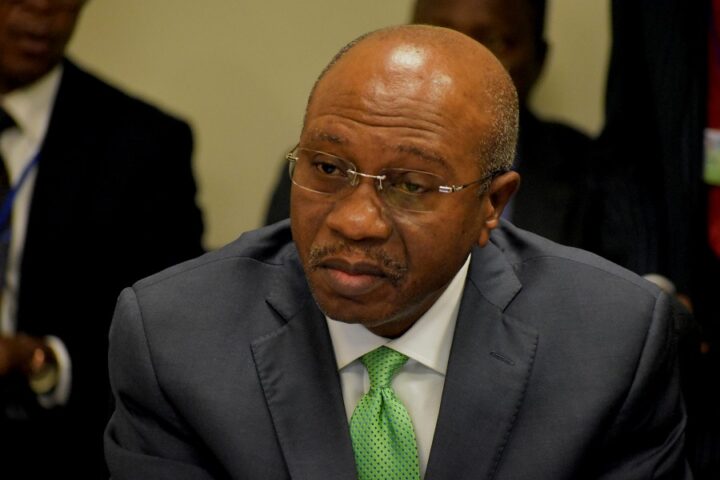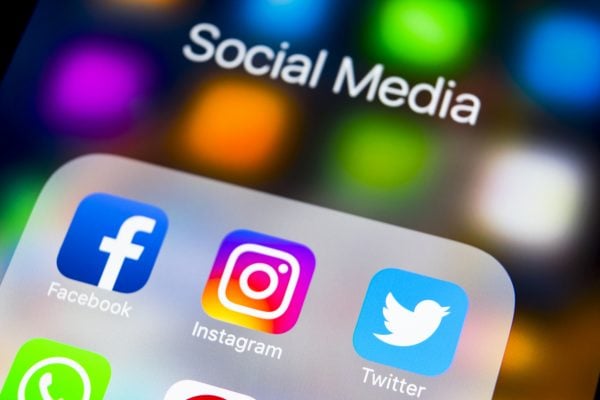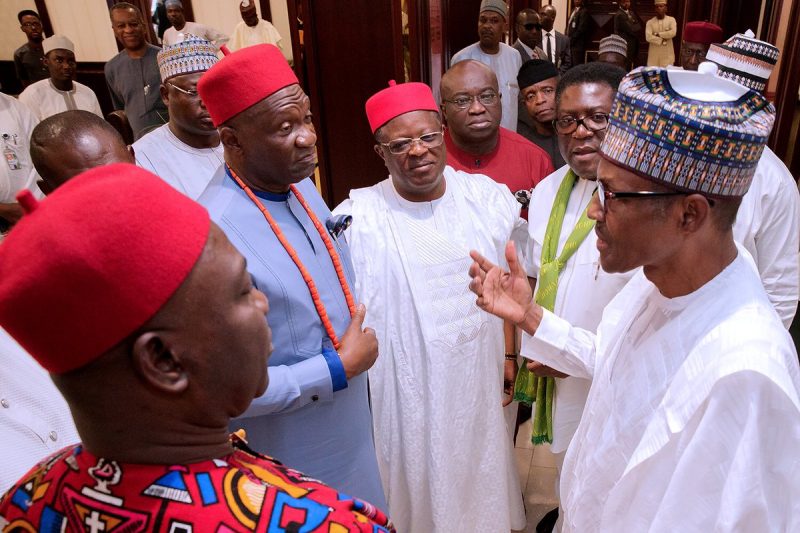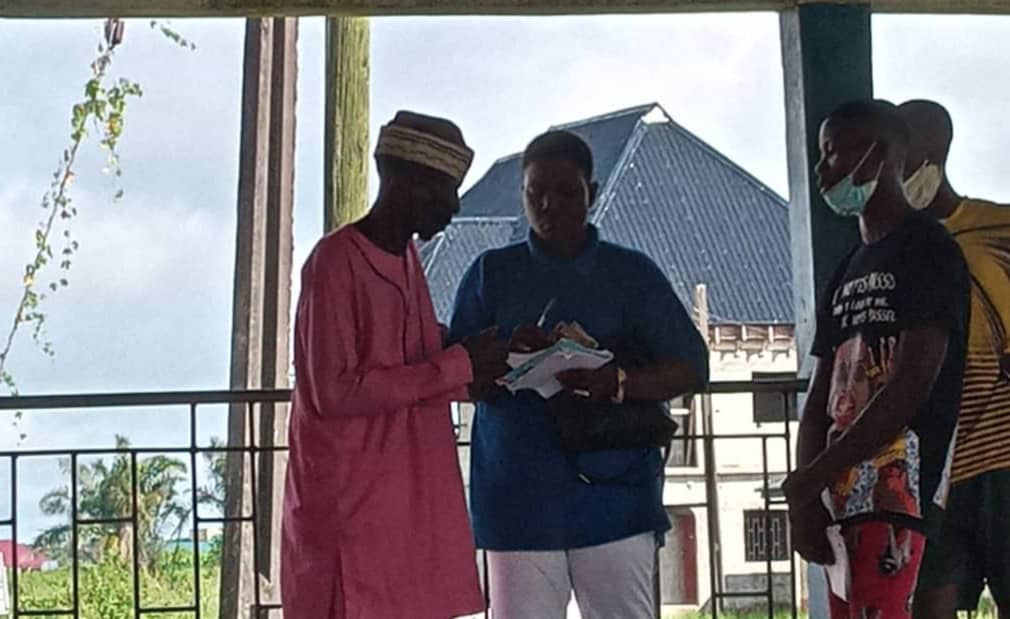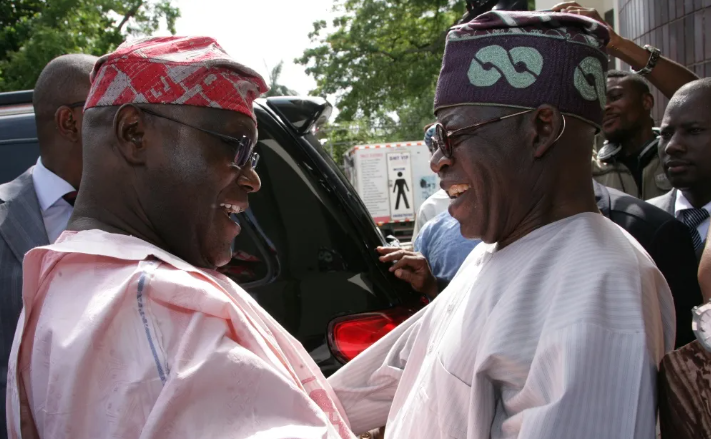I was recently graciously invited as one of the panelists at the star-studded maiden edition of the Central Bank of Nigeria (CBN) summit on how to drive the export market in Nigeria for more productivity and sustainability, one of the policy planks under the RT 200 (Race to $200 bn foreign exchange inflow) initiative. Mr Godwin Emefiele, the CBN governor had launched the RT200 idea earlier this year, in response to what is an existential problem for this country. Some people call it ‘dollar scarcity’, but what it actually is, is a perennial, permanent balance of trade crisis resulting in a balance of payment disaster. This crisis has been worsened and laid bare with increased vandalism and if you like, ‘nationalisation’ or privateering of the nation’s crude oil resource by criminals as well as communities.
The communities have complained, for long, about injustice. I wouldn’t say I support all their claims. But now, elements in many communities have simply found ways of debarring the government from getting much. Organized criminals everywhere have also leveraged on the community angst, such that in some assets when 200,000 barrels is pumped through the pipes, only 3,000 barrels is found at the other end. That is a 98.5% loss. Which serious company will maintain such an asset resulting in major losses? The asset that Tony Elumelu acquired suffered this fate.
Therefore, on the flip side, the industry has seen serious divestment in Nigeria. They also made some mistakes. The minister of state for petroleum resources, Timipre Silva, said the other day that they were asked to cut down production by 100,000 barrels a day sometime in 2020 by the OPEC cartel to which Nigeria belongs. They mistakenly cut down 300,000 and to date have been able to recover only 70,000 in production. Nigeria is unable to meet even her OPEC quota, as only deep-sea production by the major IOCs (international oil companies) are assured these days, shallow water and land assets having been greatly compromised. The crude oil sector in Nigeria is as good as dead. What Nigeria manages to get from exporting below-OPEC- quota crude oil – which is like 30% of the value as reported by NEITI (the 70% bulk value being due to the IOCs who actually produce the crude) – is totally cancelled out by the refined petroleum and other oils like diesel that we import. The minister of finance, Hajia Zainab Ahmed said this exactly at the recently concluded World Bank Nigeria Development Update.
With crude oil no longer able to save Nigeria, we have all been caught swimming naked. Our rump is now in the open. But our behavioursn have not been curbed. Nigeria is often left out of many analyses by serious entities these days, because we are an outlier – a very unique case study of how to totally mess up an economy. Contrary to what the banker types and liberal economic thinkers and pushers of ‘orthodox’ economic thinking would have us believe, the issue is not just the petrol subsidies. Imagine that people are pushing a developing, informal economy to adopt orthodox ideas od Adam Smith! The problem is much deeper, structural and historical. I don’t know why some of such guys – who are often powerful and have had great input in running our government – like to think very narrowly. Real economists do not think narrowly but systemically. I have to vent my profound fears, but these guys think in lockstep with multilateral agencies like the IMF and World Bank who have since focused narrowly on the need for Nigeria to remove oil subsidies. If Nigeria does that presently, I’m afraid we will collapse the country. Not like we haven’t tried before though. Nigeria agreed when Buhari removed subsidy by raising the price of petroleum from N87 to N145 in 2016. What undid that ‘full and final’ removal of subsidy was the devaluation of the Naira that came right after. All of a sudden, N145 which had been equivalent to about 80 cents, became less than 40 cents, bringing back the subsidy, which was then termed as ‘under-recovery’ by the NNPC. I don’t think any serious economic argument went on under the Buhari administration. Or maybe what they lacked was honesty in painting the true picture for the president. Devaluation and deregulation, when you mark the market to the US dollar, do not go together. The same issue is sure affecting the power sector as we chase and elusive ‘market-reflective tariff’. The people are groaning. The economy is dying. Crime is rising. Inflation is rising. We are in another economic depression and something needs to be done urgently.
Advertisement
As far as the so-called ‘dollar scarcity’ is concerned, I think the use of that phrase by those who promote it – including manufacturers’ bodies apart from bankers – is escapist, lazy and deliberately obliterates the importance of the trouble we are in. You cannot complain about ‘scarcity’ of money when you are not working or producing anything worthwhile for others to buy off you. You should get a job, or create something worth some value, and push it in a crazy, dog-eat-dog world that the market is. As far as a nation is concerned, we must understand that almost all the countries that matter want us to remain where we are – as markets for their manufactures and technologies, while the sometimes humour us by buying some of the crops that we produce. The African Growth and Opportunities Act (AGOA), promoted by the USA is one of such. The focus is on raw commodities (which they often reject for reasons of standards and traces of pesticides (what they call phytosanitary conditions). Indeed, the AGOA is dominated largely by crude oil from countries that produce in Africa.
The real problem with the Naira, and why it is important for the CBN to continue managing the rates very actively as it has done, lest Nigeria and the Naira falls into a bottomless pit, taking all of us with it (except those smart Alecs who have stashed dollars somewhere but don’t know that they will still be hurt by the collateral damage), is that we don’t produce much that is worth anything. I think it is important that we repeat ad nauseum, the fact that our top 15 imports – according to Trading Economics – are in each in several billion dollars range, while only two of our exports can be so categorized. Our chief import, year on year, is technology (hardware, software, machinery for our few industries, spares, cars, and the expensive gadgets of which we are very fond). Nigerians love carrying their expensive phones around, and they love their glistening luxury cars. But we can ill-afford these. The government that comes next has too much to do. I pity them. It will not be a walk in the park at all. Some decisions will rile the public but they must be taken. Those who will work with government MUST have to work for free. It must have to be a sacrificial government that will work so that coming governments may build on their sweat. But who cares? Who can see this vision? Well, after technology, our next biggest import is refined petrol. If we import technology, gadgets, phones and cars worth about $40 billion annually, we also import petrol and diesel of close to $20 billion. The problem is that we don’t make up to $20 billion from crude in some years – being our 30% share. In our list of imports are other top-hitters, like pharmaceuticals ($3 billion), plastics ($2.5 billion), cereals ($2.3 billion), fish and other crustaceans ($1.3 billion), Iron and Steel ($1.2 billion), and others like dairy products and sugar on which we spend about $900 million EACH! These are 2020 numbers.
On the export side, all we have apart from crude oil and the gas from NLNG, are oil seeds ($317 million), cocoa beans ($280 million, fertilizers ($180 million), cashew nuts and coconuts ($117 million). You can see how quickly we hit the floor. I haven’t even mentioned the fact that we spent $28,2 billion on foreign education in the last ten years. Call that $2.8 billion yearly. Could be more, because there was a slow down in the covid year. Some point to remittance of about $25 billion, and the CBN has tried to encourage more of that, but what about corruption that sucks out more than $200 billion or more, yearly? Even legitimate earners take their monies out. There are all sorts of things that put our currency under pressure. The gambling business which is now ubiquitous among Nigerian youths is one. Purchase of high-end foreign beverages like champagnes, brandies, whiskies, is another. Our women all wear foreign wigs. Almost all our building materials – including workers – are from abroad. All of our clothing is from abroad. Most components of our local shoes are from abroad. Put all these together and we are looking at another $300 billion. One may see wanton laziness and a refusal to think on our part. But these are also great opportunities that Nigerians must take, and that must be incentivized by government to save our souls.
Advertisement
I will suggest therefore, that rather than Nigerians – be they bankers, importers, students, travelers, speculators, rich, comfortable, or from whatever walk of life – hassling and insulting the central bank for not being able to meet demands, what we need is sobriety. We need to reflect on our excesses and underproductiveness. We need to understand that when it all comes crashing down, we have all contributed to the malaise. No one can be singled out for the shellacking. If you have indulged in any of those imported stuff – especially the luxuries – flown business and first class when you’re from a lazy, uninnovative country such as ours where we don’t know how to behave ourselves (especially those who do that on government funds), you are part of the problems. Those in government who have moved around with long convoys worth billions are of course very mindless. Even the president and his vice are guilty. Is it that they did not know the extent of the problem? Couldn’t they have figured it out themselves? Is this not why all we can do is borrow? And the same type of people I described above will come and tell us ‘borrowing is good’. No, borrowing is NOT good when you produce nothing that is worthwhile.
These were some of the thoughts I wanted to share at the banker-studded event. I may have ended up giving a lecture and being kicked off the lectern anyway. But I learnt some things. And I will suggest others:
- It had escaped me that as a service-oriented country (where 52% of our GDP is contributed by services), the bulk of value the services we provide cannot be tracked back to Nigeria e.g. our music and movie industries. If a Nigerian musician lists on say Spotify, Nigeria as a country may not see any of the proceeds. It may remain abroad except the musician brings a little home. Same for listing on Youtube and the rest. When our musicians play abroad in their ‘sold-out’ concerts, I know that their promoters have arranged accounts in tax-free countries like British Virgin Island, Caymans, Mauritius, etc, into which their own share (usually a tiny fraction) are paid. Again Nigeria loses out. So, the service industry is not delivering for Nigeria.
- From my research before the program, I was able to categorise services (which now account for 55% of the global economy and 45% of employment), into those that could be directly sold by Nigeria (hoteling and tourism, IT expertise, online services like teaching, consultancy of all types, banking and electronic payment services and so on. Again, like in 1 above, a lot of these are run by very smart people who ensure the money stays abroad. Tracking of proceeds is therefore a major problem for Nigeria. The other type of services are the indirect ones – based on innovation – which add value to the hard exports that we have, like the cash crops. These value-adding services include banking and finance (where they can lend to farmers and producers to boost capability), insurance (which help local businesses to hedge risk), packaging, product design, marketing and branding, technologies of different kinds. These value adding services are very critical if Nigeria must get some dollars in from the rest of the world rather than remain on the backfoot as a raw products exporter forever. Remember that countries like China are now planting their own cassava en masse, and we are getting left out on the cocoa and palm oil field. Again, it is NOT about dollar scarcity. We deliberately misdiagnosed our ailment and are killing ourselves. Can we think of at least positioning for the AfCFTA opportunity by adding value to those cocoa, nuts and oil seeds mentioned above? That looks like our next most logical movement from where I sit. We should actually curb or ban the cheap export of raw crops, but the super foreign companies involved will never agree. Still, we must try.
- We may have to be harder on ourselves. We may have to increase the number of goods for which the CBN does not provide hard-to-find dollars. Currently, we have 43. We are simply in deep trouble. We must find ways of bootstrapping ourselves and forcing ourselves to produce more of everything we need. Looked at in a different light, we may have arrived at a great time of opportunity. We may also go round the world scouting for companies which are brave enough to come and produce here, while we actively recruit young Nigerians to experiment with their ideas and help them mainstream. We don’t need MSMEs who are merely importing goods for resale. We need them to produce here, using Nigerian materials. Foreign goods will have to cost a lot more to give opportunity to local producers. Tax authorities must be more active in targeting luxury consumers. We have come to a time when it is necessary to take very hard decisions and EXORCISE ourselves of the demons of profligacy, foolish pride, waste, corruption. We must now be targeting the long elusive ELITE CONSENSUS. The rich must give up more and pay more. It is only them we can depend on to save this country, and they will also enjoy the benefits of sweeping reforms and mass mobilization for good. The rich must stop demanding for cheap dollar for their travels, their children’s school fees and their luxury purchases. And they cannot also push the government to float the naira into oblivion so that they may enjoy their acquired tastes. We live at a time when we need patriots; just like people like Patrick Henry, to Alex Hamilton saved America with patriotism. We need to call a halt, a moratorium on this cheap dollar and foreign goods addiction.
- From my own analysis, since we are stuck with a bad subsidy problem, and now that we are under pressure from the multilateral agencies to devalue AND deregulate at the same time, we have to be wise. If we take their advice, we would have ingested economic and social sniper. I kid you not. The combo of these two policies is deadlier than SAP which sent us on a spin since 1986. This is why I was very opposed to an Osinbajo presidency. He had bought their line, hook, line and sinker. We actually have no choice than to stay our hand on deregulation of petrol. It is bad enough that people now have to pay N800 – N850 for diesel and N12,500 for a 12.5kg can of cooking gas. We dare not deregulate petrol now, as it is literally a volatile issue. But is we work on curbing excessive importation, encouraging local production, retooling our textile sector, we may be able to localize our issues, ensure money flows within the country, balance out the inflation issue by at least ensuring money flows locally, and eventually, cause a revaluation of the naira, after which we may deregulate. It will not be easy for we have fallen into the debt trap of those who are wiser than us. We have also left it way too late like as stated above. Too many decades of utter waste, wanton gluttony and unthinking profligacy and insane corruption. All these must stop.
I wish Governor Emefiele the best as he dares these problems. The opposition – internally and externally will be as solid as the north wall of Westeros. I wondered why Emefiele wanted to be president. Now, I think maybe he wanted to see how he could cause this shock therapy that Nigerians need. It couldn’t have been just to make more money. Anybody thinking of more money in Nigeria today, in a sinking economy, is on a long thing, as they say on our streets. All hands must be on deck to do the painful things required to get this country defibrillated. Her heart has stopped presently.
Advertisement
Views expressed by contributors are strictly personal and not of TheCable.
Add a comment

